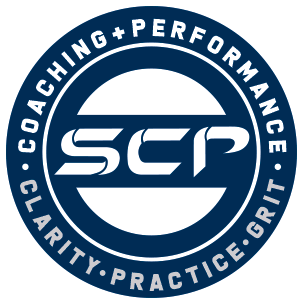Enabling team clarity
At SCP, we've found that while many aspects of leadership can be taught and discussed, teams and team projects provide an optimal setting to practice and refine leadership behaviours. Linking leadership and teamwork in our team performance coaching program, we view teams as a crucible for learning a wide range of skills that have positive impact beyond the team setting too. To get started, the SCP team coach helps the individuals in the group understand a few essentials - about themselves and about high performing teams. Then, leveraging our team performance system, we turn to collaboration on their team charter. The SCP team coach guides the team through assessments and activities that help to create clarity and build a joint commitment to inform how they will function as a team.
Insightful assessments from the start help team members better understand their own individual strengths, development opportunities and perspectives of leadership and teamwork. Beyond the functional expertise of the individuals in the group, we use personality assessments to help team members understand factors such as agreeableness, conscientiousness and extraversion across the group to help inform their understanding of tendencies such as social harmony and self-discipline within the team.
Understanding effective team dynamics is the next early step that we take with teams. We turn to the comprehensive Project Aristotle research study by Google to review the five most impactful dimensions of highly effective teams. From psychological safety - where team members feel safe to take risks and be vulnerable in front of each other, to impact - where team members believe their work matters and creates change, we help to give teams a clear picture of what a high-functioning team can look like. SCP coaches also introduce the culture analytics platform, innerlogic. Powered by AI and a research-backed knowledge base, innerlogic is a “digital culture-auditing platform” whose robust data enables SCP team coaches to diagnose and facilitate effective performance coaching interventions. With some good perspective of themselves and their team, then coach and team set to work on the team charter.
A team charter is a document that defines the purpose of a team, expected outcomes and how the team will work together for results. As a set of agreements created early when the team forms, the team charter helps to ensure that everyone is on the same page from the start. From purpose, vision and values to mutual expectations and even operating procedures, the team charter builds alignment so that everyone is moving in the same direction. Constructed in collaboration across the team, the team charter creates buy-in, fosters commitment, enhances communication, facilitates trust and helps team members stay focused and realign when times get tough.
Although many work groups may feel that they know what they need to do, and don't have time to build a charter in the face of much work to be done, spending the time upfront sets the group up for success as a high-performance team when individually and collectively, team members understand the practicalities of how, when and where they will manage meetings, along with the more challenging dynamics of making decisions and resolving conflicts.
Discover more about how we work with teams here, and get started on your own Team Charter with these powerful questions:
Purpose - What are others counting on us to do?
Vision - What do we want to achieve as a team?
Values - What values will guide our actions and decisions as a team?
Goals - How will we measure success?
Roles and Responsibilities - What are our individual skills and functional areas of responsibility?
Mutual Expectations - What behaviors might negatively impact our working relationship?
Operating Procedures - How will the team meet, communicate, make decisions, resolve disagreement and debrief its performance?
“Group culture is one of the most powerful forces on the planet. We sense its presence inside successful businesses, championship teams, and thriving families, and we sense when it’s absent or toxic.”
